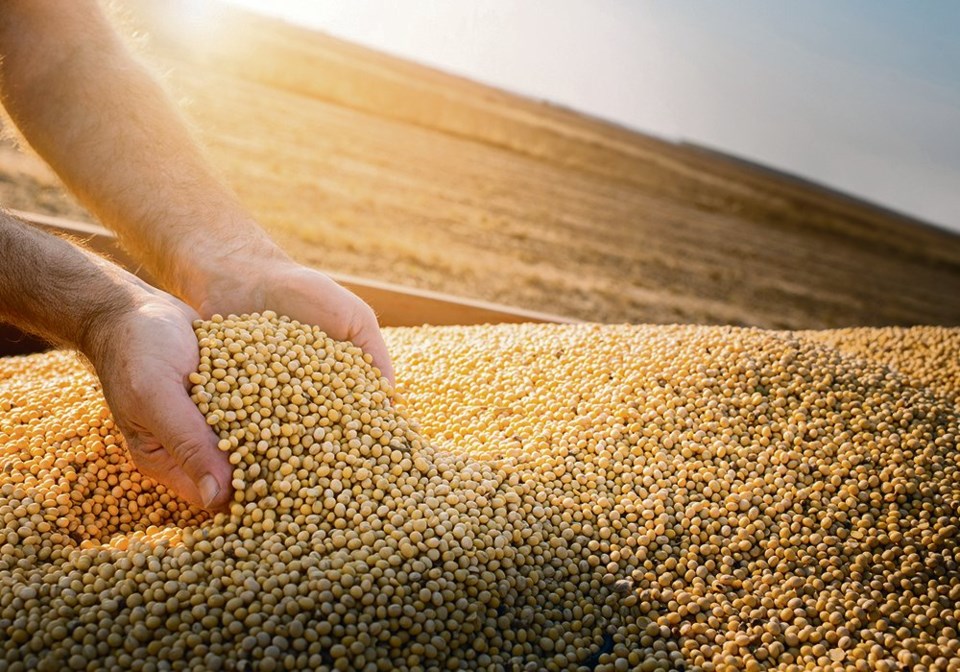WESTERN PRODUCER — These days, it seems like every company and every industry has a sustainability program.
There’s sustainable mining, sustainable forestry, sustainable fishing and so on.
But one segment of North America’s agriculture industry may have the largest sustainability program on Earth.
“We’re pleased to say that last year, almost 45 percent of U.S. soy exports carried an SSAP certificate — verifying the sustainability of the product,” said Jim Sutter, chief executive officer of the United States Soybean Export Council. “We expect this year to surpass that.”
SSAP is the Soy Sustainability Assurance Protocol. It ensures that American farmers follow practices that produce positive environmental outcomes, such as reducing greenhouse gas emissions or minimizing land-use impact.
“It (is) the largest sustainability verification scheme in the world,” says the United Soybean Board on its website. “In the North Asia and Europe regions, customers request a SSAP verified certificate for nearly 100 percent of their purchases.”
Sutter, who spoke during a session at the U.S. Department of Agriculture Outlook Forum in late February, said global demand for sustainable soybeans is expanding, partially because more and more consumers want to know the environmental footprint of food and agriculture.
Canada’s canola industry does have a sustainability protocol for canola seed exported to Europe, but it’s smaller than America’s SSAP program.
Canadian farmers who want to sell into the EU market, where the canola seed is mostly used for biofuel, must meet requirements of Europe’s Renewable Energy Directive.
“I think it’s probably 10 to 13 percent of our production in Canada that is exported under a certification scheme,” said Jim Everson, Canola Council of Canada president. “The majority of it is certainly going to Europe, for the biofuel system over there, but some portion going to the U.S… in order to market into the United States for the biofuel system.”
There is growing interest in sustainability and carbon reduction, Everson added, but customers in the other major markets for canola seed, oil and meal, like Japan, haven’t directly asked Canada’s canola industry for a sustainability protocol or program.
“These systems are built according to the need of the marketplace,” he said.
“There’s more interest… but what our industry does (it) is constantly in touch with the marketplace and responding to what the market requires.”
Canada’s canola sector will respond as needed to sustainability demands, but there is a debate around how to respond and some question if Canada needs to respond.
“The question there is: do you do something that’s commodity specific… a certain sustainability program for a particular crop? Or do you try do the whole farm because a farmer has got multiple crops in his rotation. It’s an ongoing discussion,” Everson said.
For now, it seems like Canada’s grain sector is leaning toward the whole farm approach.
The Canadian Roundtable for Sustainable Crops (CSRC), a coalition of commodity groups, grain companies and others in the ag sector, has been developing a code of practice called Responsible Grain.
Exporters of Canadian grains are increasingly hearing from buyers, asking for data and information about the sustainability of grains, oilseeds, pulses and other crops, CSRC said in a white paper, released in January.
“Although there aren’t strict sustainability requirements in place right now for the majority of Canada’s grain exports, the expectation is that at some point in the future, Canada will have to show that their grain is sustainably produced or be shut out of the higher-priced markets,” says the executive summary of the white paper.
The draft code of practice for Responsible Grain, released last winter, focused on practices like pesticide use, nutrient management, soil management, water management, land use and wildlife.
The voluntary code provoked a strong response from hundreds of farmers in 2021, including Gunter Jochum, a Manitoba grain producer who is skeptical about the code and its value.
“It really boils down to why is this code needed?” Jochum said last summer. “Whose idea was it that we actually need this code… and please show me one jurisdiction in the world that has a code which gives them a benefit as far as international trade is concerned.”
Other farmers felt the voluntary requirements would become mandatory in the future.
The leaders of the CSRC listened to the criticisms and held consultations with farm groups this winter.
“(However), no decision has been taken on if, or how, to rewrite a code to respond to the Responsible Grain consultation feedback,” the white paper stated.
Canada’s grain industry continues to discuss sustainability, but other countries are moving ahead with their programs.
“There are currently a limited number of established markets for sustainable grains, but the number is growing,” CSRC said in its white paper. “Some of our major competitors are preparing for an anticipated surge in demand…. Australia, United States, Argentina, Brazil and the United Kingdom have partial or full national sustainability programs for grains, oilseeds and special crops.”

